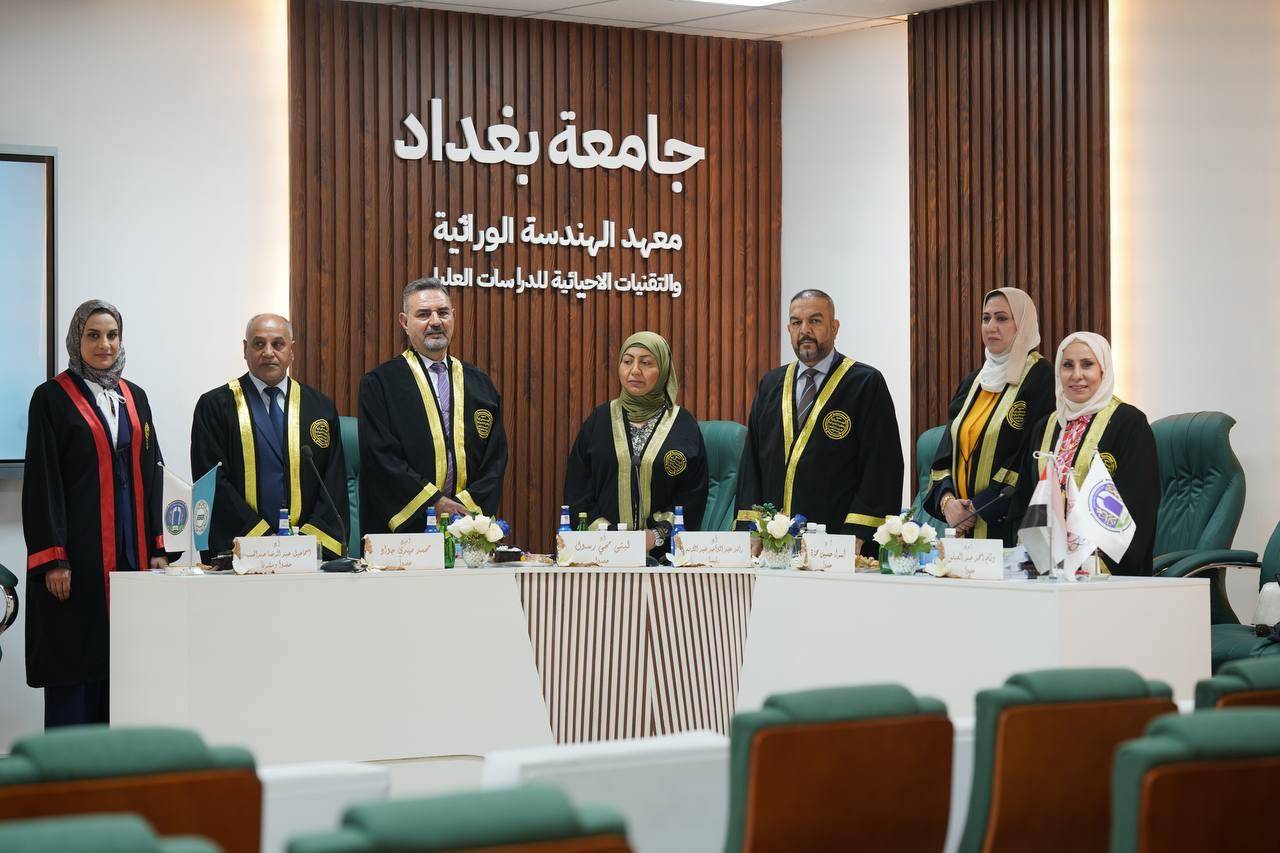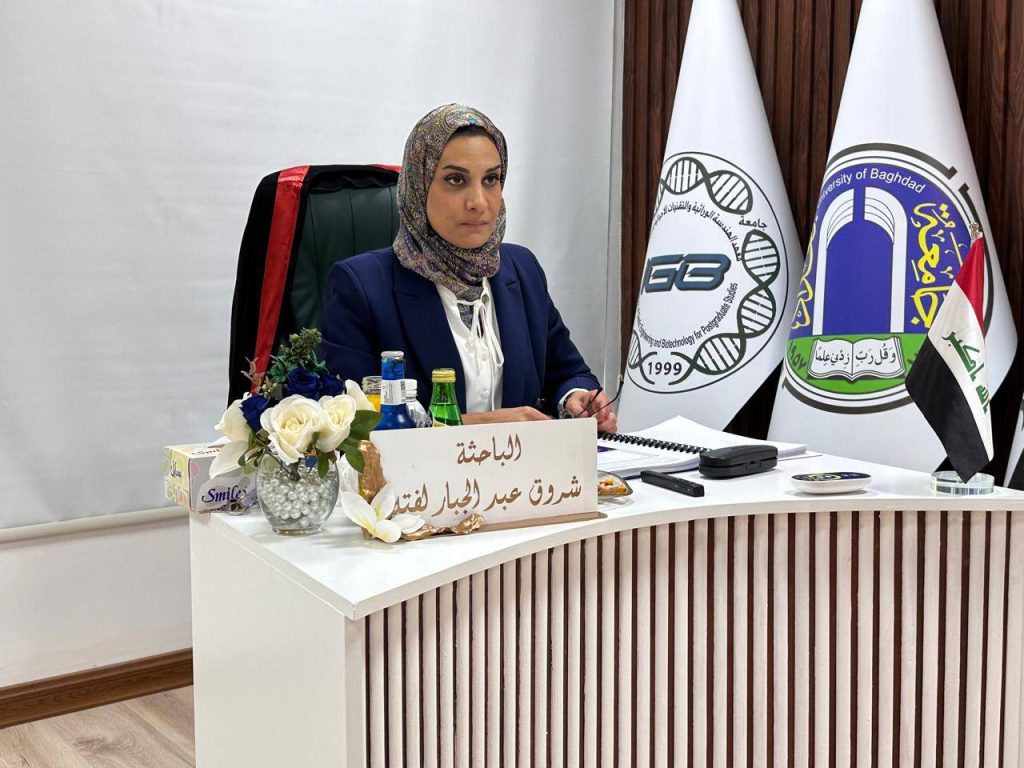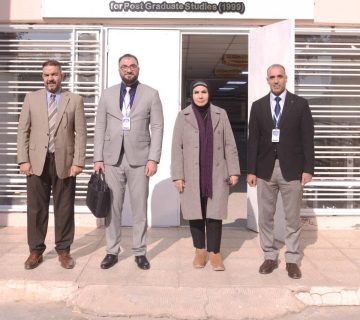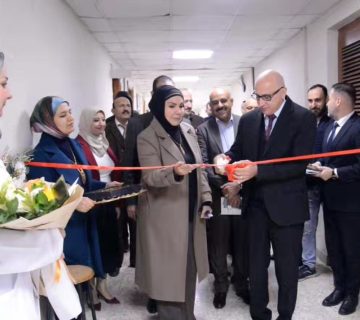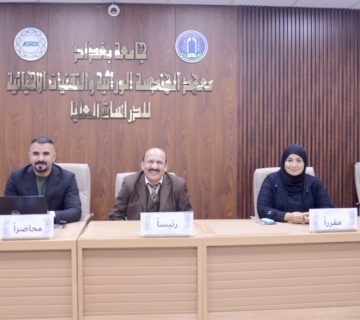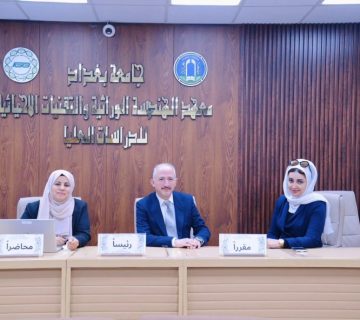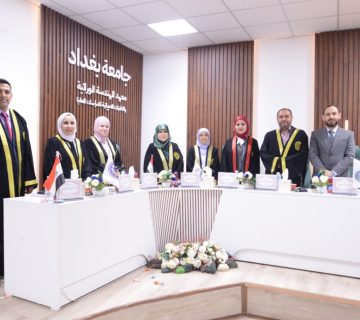The Institute of Genetic Engineering and Biotechnology for Postgraduate Studies at the University of Baghdad discussed the PhD dissertation of student Shurooq Abdul Jabbar Lafta, entitled:
“The Association of Genetic Variations in FLT3 and NPM1 Genes with the Risk of Acute Myeloid Leukemia in a Sample of Iraqi Patients”, supervised by Prof. Ismail Abdul Redha Al-Lami.
This study is considered the first in Iraq to use capillary electrophoresis to detect FLT3-ITD mutations.
The primary aim of the research was to investigate the prevalence of FLT3-ITD, FLT3-TKD, and NPM1 mutations among local patients with acute myeloid leukemia, and to study their association with hematological parameters, kidney function, and metabolic activity.
The results showed that females had higher rates of type A and D mutations, while males were more likely to carry the type B mutation. Regarding blood components, no statistically significant differences were observed between the NPM1 mutation carriers and the non-carriers.
The study further revealed that combined mutations were detected in both FLT3-ITD and NPM1 in 12% of patients, while combined mutations in FLT3-TKD and NPM1 were found in 6% of cases.
The dissertation recommended the importance of conducting broader, multi-center studies and the routine use of capillary electrophoresis in the diagnosis of acute myeloid leukemia.

